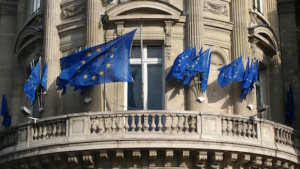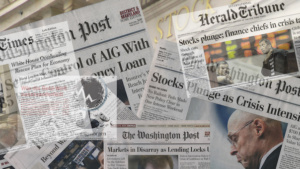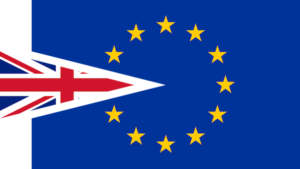by Carine Belmont
I am French, I am European and it is with sadness that I welcomed the news about Brexit in June and with concern that I look at the rise of the populism across Europe and the world. But is it the sign of the end of our common history? Would the announcement of a merciless populism, which will definitively end the links that unite our countries, mean the collapse of the European Union is inevitably close? I do not think so and I choose not to believe in it.
I grew up in the European Union and thanks to this when I look at the United Kingdom, Germany, Poland, Estonia and so many other countries, I see friends. Because it is what the European Union made of us: friendly countries, where we are welcome to travel, live and work.
A family history

For me, the European Union has something of a family, a mismatched family very certainly but which family is not! Our History and the foundations of the European Union are based on the intimate links, which united its founding countries. The wars, the alliances and the exchanges, which punctuated our history as well as the horror of the Second World War, have resulted in binding us together. Indeed, only 6 years after the end of the war, in 1951, Belgium, West Germany, Italy, Netherlands, France and Luxembourg decided to become economically allied through what was the European Coal and Steel Community. Why? This alliance was first proposed by the French Foreign Minister Robert Schuman on the 9th May 1950 as a way to prevent further war between France and Germany. It was perhaps also a way to fade the shame of both countries: one, which elected one of the worst dictators in the history, the other which let the enemy enter within its walls without much resistance. However, above all it is a union to face adversity because the post-war years were far from being a picnic. The tensions caused by the Cold War were worrying.
Over the years, the European community became a common market and changed its name to the European Economic Community. Early on, the United Kingdom, Ireland and Denmark joined, followed by many other countries. In 1992, the Maastricht Treaty established the European Union and its four freedoms: freedom of movement of goods, people, services and capital over borders.
Currently, 28 countries are members of the European Union, each bound to one another by a common history, common interest and above all a desire to live together.
A new era: the fear takes root

The world economic crisis in 2008 imposed a severe blow to the European Union. With the critical situation in Greece and other countries, it appears that the European institutions are not as successful as we believed them to be. Nevertheless, the countries kept fighting together, not without difficulty, and supporting each other. The European Union comes with aid to economically struggling countries and creates “the banking union” in aim to establish a safer and sounder financial sector for the single market. In 2012, the European Union received the Nobel Peace Prize. Even though the economic crisis highlighted the limits of its system, the institutions are malleable. New treaties establishing new institutions are possible. The European Union has already had numerous lives, numerous names and so many treaties defining its functioning and its institutions.
However, the economic crisis did not cause damages only on the economic level, but it awoke the fears towards the alliances. People began to be afraid that the fall of one would inevitably lead to the fall of others. Thus living separately seems like a safer option to many. Moreover, new challenges appear. Difficult ones: the religious extremism raising in the Middle East, the massive immigration towards Europe of populations running away from their warring countries and terrorist attacks affecting the countries of the Union. All of them feed the fears and cause a self-withdrawal of populations. Thereupon amalgams between immigration and terrorism have quickly settled in our frightened minds.
These fears, which find accommodation in our minds, are also caused by the work of the media and politicians. The communication seems to become the key point of our lives. The politicians become more communicators than statesmen. The television henceforth entertains more than it informs and fear is certainly the best way to make sure you remain stuck in front of your TV. For example, the tragic terrorist attacks in Paris lasted only a few hours, however the media explored the topic for days, weeks and even months.
Hence, the border shutdown and the end of the European Union seem a simple and effective way to fight against the immigration, the terrorism and the economic decline. On the other hand, closing the borders is also isolating oneself from its neighbors. Once that is done, will the threat have really disappeared? What if the bigger threat comes from within? Shouldn’t we have learned this from the Second World War? It was xenophobia and populism that pushed Germany to elect the man who made them enter into a war and it was the alliance of countries that made us able to end it. It is true- when one falls we feel the damage, but we are also able to get up all together and remain united.
Brexit: first step to the end of the Union?
The Brexit announcement also shook the European Union. Is it necessarily the beginning of the end? Nothing could be less certain because the history of the United Kingdom within the European Union is particular because the European single currency never passed through its doors and the controls of its borders still remain. Nevertheless, the vote of Brexit was a shock, including for a part of the population of the United Kingdom, and the members of Parliament wanted to remind that their agreement is necessary for its implementation.

This particular relation is reminiscent of the one that the United Kingdom maintains with France. Both have always adored hating each other, but between love and hate there is only one step. It seems that, in spite of the pitfalls, the step has always been negotiating in the right direction. We shared kings, queens and wars, invaded each other and moved forward, and grew up each in our own way but tirelessly together. In the end, the United Kingdom and France are like two sisters, who admire and envy each other at the same time. The one laughs at the monarchy of the other one while envying this magnificence, which she lost a long time ago. The other one mocks the gastronomy of her sibling while regretting that its own does not inflame so much passion worldwide. Then, it is with a lot of sadness that France will see the United Kingdom leaving the European Union, but never with bitterness, because the links which unite us are unwavering. The History proved it many times.
Like France and the United Kingdom, it is for me these close and intimate ties between the countries that have made the European Union. Then, even if tomorrow it has to collapse, these links will remain and the European Union will be able to get up, with maybe a new name, new institutions, new rules and new alliances, but always with the intention of a better common future.










